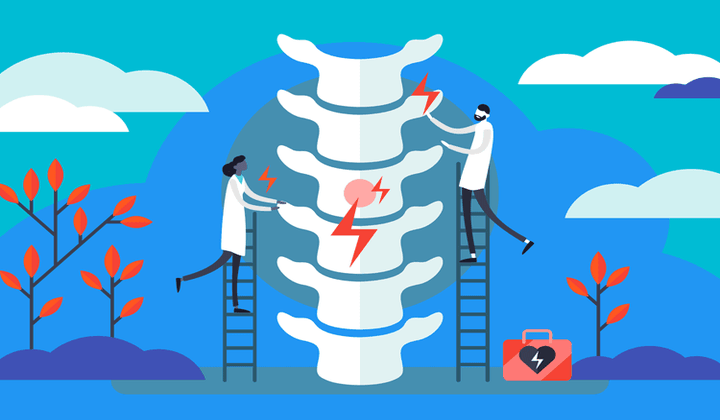Why you Should Complete a Medical Terminology Course

Medical terminology consists of the terms used by healthcare professionals to identify symptoms, diagnoses, and treatment processes.
As you might expect in the medical field, it is essential to learn medical terminology, since it’s the language used to explain what is happening to the patient. If healthcare professionals didn’t understand it, then administering treatment and identifying health issues would be impossible.
Whether you’re a doctor, nursing student, or behind a clinic reception desk, you should know how to use and understand medical terminology, since you’ll be using it every day at work.
The benefits for healthcare professionals
It’s quick
A lot of the medical terms are abbreviations that convey a lot in a short amount of time. This is arguably the most important aspect of learning medical terminology.
In an emergency situation, knowing what these terms mean allows doctors and nurses to provide the proper treatment for their patients.
Opening up a dictionary or searching up what a particular word means online will waste precious time that could potentially have fatal consequences.
It reduces errors
If everyone understands and communicates with a universal language, then naturally, there’s less room for error.
The medical terminology in a patient’s medical record will indicate the specific type of treatment they need and whether or not their condition will impede on certain medical practices.
For example, a doctor may not go through a particular procedure because of the medication the patient is taking.
It’s specific
This point refers more to identifying organs and the different body systems, such as the nervous system, musculoskeletal system, etc.
For example, if one of your colleagues tells you that the patient is having with their problems with their gallbladder, then you will know that the patient is having issues with their digestive system.
You will know the precise location, which will make your job a lot easier, and make you more confident when you’re working in a medical environment.
It provides you with knowledge of particular systems
Medical terminology can also act as a continuation of your education. It will give you insight into what comprises each system, and its subsequent functions.
This way, you’ll be able to give your patient a clearer idea of what their diagnosis is, which will improve your patient’s overall experience.
It’s universal
No matter which hospital you go to, every healthcare professional will use the same language.
This makes it easier on you if one of your patients has to go to a different doctor or hospital, and you need to pass on records or vice versa.
The benefits for people who aren’t in the healthcare industry
Even if you’re not in the healthcare field, learning medical terminology can still be beneficial for you.
How many times do you go to the doctors and you don’t completely understand what they’re telling you? Maybe you just want to truly understand what’s happening with you if you’ve been diagnosed with a particular condition or your doctor has advised you of a certain medical procedure.
You can simply ask your doctor or other healthcare professional about what certain words mean. More often than not, they’re happy to help you understand, considering that they want you to be satisfied with your experience.
How to learn the medical language
There are both offline and online courses that can teach you all the medical words used by healthcare professionals. You will need to pay a fee for a lot of these courses, but they are relatively short, so you should be able to complete them fairly easily.
There are free online courses as well, though these are more for people who have already come across these terms but want to consolidate their knowledge even further. But this isn’t the only technique you can use if you’re having trouble memorising what each word means.
There are several other ways such as downloading flashcards and dictionary apps which you can look at any time and creating acronyms by taking one letter from each word that relates to each other.
The main takeaway here is that, if you’re serious about getting a job in this area, then you absolutely need to learn these medical terms. You have to work as a team, and in order to be an active member of that team, you will have to communicate in a language everyone can understand.
As you can see already, there are plenty of other benefits, so go ahead, study hard and work efficiently as a healthcare professional.
Latest Articles
The Future of Counselling Jobs in Australia
Thinking about a career in counselling? You might wonder—is it a good career choice right now? Will...
How to Get Your Counselling Accreditation and Registration
Embarking on a counselling career in Australia offers a fulfilling opportunity to support people in...
What Are Counselling Microskills?
Microskills are fundamental communication techniques used to build rapport, actively listen, and gui...
Want to read more?
So, You Want to Become a Nutritionist?
The health and wellness industry is booming, but what exactly is a nutritionist and is it a good car...
How to Become A Mobile Hairdresser
Becoming a mobile hairdresser is a great alternative to working in a salon, giving you the freedom t...
7 Things I Wish I Knew Before Becoming a Counsellor
Thinking of a career in counselling? Read some advice on what a professional wish they knew before t...
